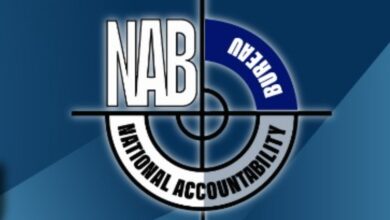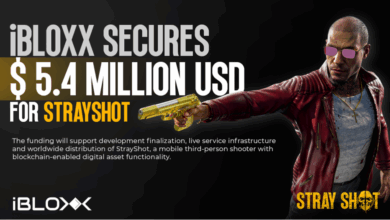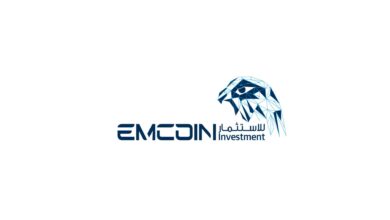
At the heart of the MENA region’s digital finance transformation, Qatar has taken another step forward.
The inaugural Digital Assets Policy Roundtable, held in Doha and co-hosted by the Qatar Financial Centre (QFC) and Global Stratalogues, brought together top global regulators, innovators, and policymakers to chart a pragmatic and inclusive course for real-world asset (RWA) tokenization.
Strategically aligned with the Qatar Economic Forum, the closed-door event showcased Qatar’s ambition to shape, not follow, the global digital finance narrative. The roundtable emphasized building infrastructure over hype, regulation over speculation, and inclusion over isolation.
“We are not here to talk about crypto,” declared Henk J. Hoogendoorn, Chief Financial Sector Officer at QFC. “We are here to talk about digital assets; real-world tokenization, and the infrastructure that makes it work.”
MENA Takes Centre Stage
The Middle East and North Africa region is emerging as a crucible of regulatory experimentation and forward-looking policy frameworks for digital assets. Qatar’s model, grounded in Islamic finance principles and modeled after Liechtenstein’s trailblazing TVTG law, reflects a deliberate and principled approach.
Through cross-agency collaboration with the Qatar Central Bank and Qatar Central Risk Authority, the QFC has introduced a legal and regulatory sandbox that was hailed by participants, especially by Sandra Ro, CEO of the Global Blockchain Business Council (GBBC), as a global best practice.
“The QFC’s regulatory sandbox stood out for its responsiveness and real-world orientation,” Ro remarked. “Most sandboxes fail because they’re rigid and one-size-fits-all. Qatar’s doesn’t just experiment—it implements.”
Global Stratalogues: Convening Visionaries
At the helm of the roundtable was Oscar Wendel, Founder and Chairman of Global Stratalogues. With a rich background at the Financial Times and MEA-Finance, Wendel has long championed high-impact dialogue at the intersection of finance and innovation.
“Our mission at Global Stratalogues is to move beyond panels and whitepapers and into shaping the very frameworks that will guide digital finance globally,” Wendel said during the opening session. “Qatar is leading by example.”
Under his stewardship, the roundtable delivered not just discussion, but direction. One of the key outputs was a call for “regulatory interoperability,” with shared standards, cross-border token portability, and inclusive infrastructure emerging as top priorities for implementation.
Infrastructure Before Innovation
Echoing this sentiment, speakers from across sectors, including ChainArgos, GBBC, Zodia Custody, and XDC Network, stressed that the success of tokenization in MENA hinges not on technological novelty, but on building foundational infrastructure.
Real-world examples included:
• The UAE’s healthcare sector, using AI and blockchain to eliminate redundant patient records.
• Bahrain’s tokenization of aircraft ownership, signaling tangible use cases beyond digital hype.
• Trade finance pilots linking Indian MSMEs with UAE buyers, delivering liquidity to underserved businesses.
Inclusion, Not Just Innovation
One of the defining themes was financial inclusion. As tokenization matures, its role in democratizing capital access, particularly in underbanked regions of MENA and Southeast Asia, cannot be overstated.
“We need to innovate with purpose, not just profit,” said Sandra Ro. “Tokenized finance should lift communities, not just returns.”
This is already taking shape. GBBC’s “101 Blockchain Use Cases” handbook, distributed to over 20,000 government stakeholders, features QFC’s sandbox as a case study in inclusive innovation.
Regulatory Clarity: The Bedrock of Trust
Speakers unanimously agreed: legal certainty is essential. Without clearly defined asset classifications, ownership rights, and compliance frameworks, tokenization will remain stuck in pilot mode.
Drawing inspiration from Liechtenstein, whose Token and Trusted Technology Service Providers Act (TVTG) remains a global benchmark, Qatar is working on becoming a regional regulatory architect. The roundtable highlighted the nation’s ability to balance innovation with compliance, particularly by integrating Islamic finance structures into token frameworks like Murabaha and Sukuk.
A Blueprint for MENA’s Digital Asset Future
As the curtain fell on the roundtable, the message was clear: MENA’s digital finance leadership won’t be built on slogans or speculation. It will be built on bridges between regulators and technologists, public and private sectors, and local markets and global standards.
Looking ahead, the QFC and Global Stratalogues plan to expand the roundtable format into a sustained platform for policy co-creation, with future sessions tackling decentralised governance (DAOs), CBDC-stablecoin interplay, and the AI-Web3 convergence.
In the words of Maha Al-Saadi, Head of Regulatory Affairs at QFC, “Regulatory clarity is not a luxury, it’s a prerequisite for scalable tokenization. Our goal is to bridge global standards with local implementation.”
To sum up, there is no doubt that the MENA region is ready to lead the next chapter of global digital finance—not from the sidelines, but from the front.




